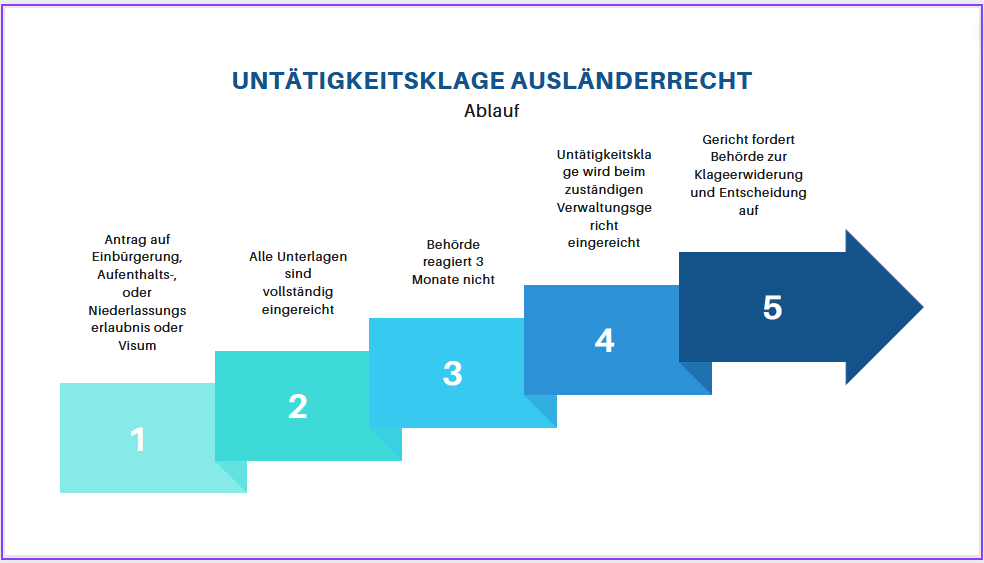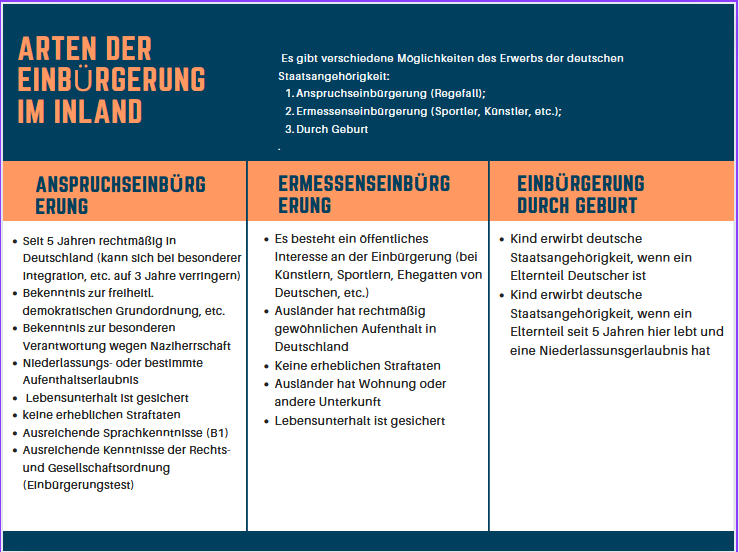Administrative Court Saarlouis, June 23, 2017, Ref. 2 K 1999/15
If a foreigner wishes to become a naturalized citizen, they must meet several requirements. These are stipulated in the Nationality Act (StAG) and the Residence Act (AufenthG). Additionally, there must be no specific reasons against naturalization.
According to § 11 Sentence 1 No. 1 StAG, extremist activities can lead to the exclusion from naturalization. There is no need to provide proof of extremism; it is sufficient if there are concrete indications that justify the assumption of such activities. It is not always clear when this assumption is justified, whether long-term extremist activity is required or if a single instance of consuming extremist content is enough.

In the following judgment, the Administrative Court Saarlouis clarified that a Facebook photo with a Salafist preacher and showing the Tauhid finger does not automatically justify the assumption that extremist activities are present.
Facts of the Case:
The case involves the rejection of naturalization for a Kosovo national who has lived in Germany since 1991 and holds a settlement permit. The plaintiff had applied for naturalization in 2013, which was rejected by the defendant due to alleged Salafist activities. These accusations were based on information from the State Office for the Protection of the Constitution, specifically a photo posted by the plaintiff on Facebook in 2013. The photo showed him with a Salafist preacher and displaying the Tauhid finger, a gesture used by Salafists.
Plaintiff’s Background and Arguments:
The plaintiff explained that he took the photo because he wanted to learn more about Islam and denied any extremist intentions. He emphasized that the gesture had no deeper meaning for him and that he was unaware of its negative interpretation. He also distanced himself from the preacher and assured that he would not attend any of his events in the future. The plaintiff filed a lawsuit to obtain naturalization, arguing that the photo was similar to another photo where he made a fist, which did not lead to extremist interpretations.
Rejection of the Naturalization Application:
The defendant rejected the naturalization application, arguing that by posting the photo, the plaintiff supported extremist activities, which according to § 11 Sentence 1 No. 1 StAG is a mandatory exclusion ground for naturalization. The defendant doubted the plaintiff’s ignorance of the preacher’s extremist orientation and viewed the Tauhid finger gesture as an indication of support for such activities. The plaintiff’s distancing from these actions was considered insufficient.
Judgment of the Administrative Court Saarlouis:
The Administrative Court Saarlouis ruled in favor of the plaintiff, ordering the defendant to naturalize him. The court found that the general requirements for naturalization were undisputed and that only the exclusion ground under § 11 Sentence 1 No. 1 StAG was in question. This ground is only applicable if concrete indications justify the assumption that the foreigner has pursued or supported extremist activities. The court defined pursuing as actively working towards extremist goals and supporting as participating in someone else’s efforts towards these goals, for example, through financial support or participation in extremist activities.
The court concluded that there were no sufficient indications that the plaintiff had pursued or supported such activities. It accepted the plaintiff’s explanation that he took the photo out of ignorance and naivety, without being aware of its extremist significance. It also noted that the plaintiff credibly distanced himself from any past Salafist activities. The court emphasized that the plaintiff had filed the naturalization application before the accusations became known, suggesting he was not avoiding extremist activities for tactical reasons.
Court’s Reasoning:
The court highlighted that the proof of distancing from extremist activities should not be more stringent than the proof required for the exclusion ground itself. It must be evident that a positive change in the applicant’s inner attitude has occurred. In the plaintiff’s case, the court found this change credible, noting his distancing from the preacher and his personal and professional circumstances indicating that he leads a normal life in German society.
Conclusion:
The Administrative Court Saarlouis rejected the existence of an exclusion ground and ordered the defendant to naturalize the plaintiff. The court found the plaintiff’s distancing from the preacher and his credible renunciation of extremist activities sufficient to deem the exclusion ground under § 11 Sentence 1 No. 1 StAG not applicable.

Source: VG Saarlouis
Important Note: The content of this article has been prepared to the best of our knowledge and belief. However, due to the complexity and constant evolution of the subject matter, we must exclude liability and warranty. Important Notice: The content of this article has been created to the best of our knowledge and understanding. However, due to the complexity and constant changes in the subject matter, we must exclude any liability and warranty.
If you need legal advice, please feel free to call us at 0221 - 80187670 or send us an email at or send an email to info@mth-partner.de info@mth-partner.de
Lawyers in Cologne advise and represent clients nationwide in immigration law.

